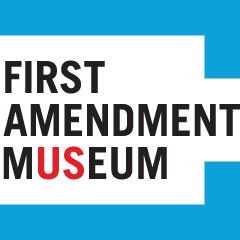One on 1 with Michael Bindas
“It’s important to recognize that the First Amendment isn’t the source of these rights. The First Amendment isn’t the source of your right to free speech or to the free exercise of religion. It’s the source of protection for those rights.”
In this One on 1 interview, we are joined by Michael Bindas, senior attorney with the Institute for Justice. Bindas recently argued before the Supreme Court in the controversial case Carson v. Makin. In this interview, Bindas will share his thoughts on educational choice and discuss his role in securing the right of parents to make decisions concerning their children’s education.
Transcript
Michael Bindas: It’s important to recognize that the First Amendment isn’t the source of these rights. The First Amendment isn’t the source of your right to free speech or to the free exercise of religion. Is the source of protection for those rights.
Max Nosbisch: Hello, everybody, and thank you for tuning in to this episode of The First Amendment Museum’s One on 1 interview series. I’m Max Nosbisch, the manager of visitor experiences here at the First Amendment Museum. Today I’m joined by a really wonderful guest, Michael Bendis. Michael, do you want to take some time to introduce yourself?
Michael Bindas: Sure. Thanks, Max. My name is Mike Bindas. I am a senior attorney with the Institute for Justice. The Institute for Justice is a nonprofit public interest law firm that litigates in four areas. We defend property rights, freedom of speech, economic liberty, and educational choice, which we’ll be talking about today. That is the right of parents to make the decisions concerning their children’s education and to direct the education and upbringing of their children.
Max Nosbisch: Awesome. Thank you, Michael. Thanks for joining us.
So why do you think the First Amendment is important? What is its purpose?
Michael Bindas: I look at the First Amendment really as, as being concerned with security in your mental and spiritual person, your ability to develop and hold thoughts and beliefs and also to act in accordance with them to order your life in accordance with them. So yes, it protects your right to, to form thoughts, but also to communicate those thoughts to others and to try to convince others of the rightness of them. It protects your right to hold grudges, beliefs, and order your life in accordance with those, and it protects your right to assemble with our fellow citizens and to petition government to try to bring about the vision of society or government that you and your fellow citizens see fit. So, again, I see it as protecting your thoughts, your beliefs, but also your ability to put those into action. And I really think it’s unique from some of the other amendments in that respect. And the other thing I would add is that it’s important to recognize that the First Amendment isn’t the source of these rights. The First Amendment isn’t the source of your right to free speech or to the free exercise of religion is the source of protection for those rights. The rights themselves are natural rights that pre-exist the constitution that all human beings hold, but the genius of the framers was to provide a source for their protection. And that’s what the First Amendment does, it ensures the government cannot abridge those rights.
Max Nosbisch: You argued the case in front of the Supreme Court called Carson v. Makin. What’s the story of Carson v. Makin, and why are you interested in taking on this case?
Michael Bindas: So Carson versus Makin concerns a tuition assistance program for high school students in Maine. Maine is a very rural state, and in many towns, there is not a public high school to educate the town’s residents, students. And if a town doesn’t operate a public high school or contract with a school to educate the students of that town, then it has to pay tuition for the child to attend the school of their parents choice. It can be a public school in a neighboring town, it can be a private school, it can be in state or out-of-state, it can even be out of the country. But the one thing it couldn’t be until the Supreme Court’s decision was religious. The state flatly barred parents from choosing any schools that provided religious instruction. And so you could go to some of the most elite blue blood prep schools in New England or across the country, for that matter. But you couldn’t go to an Islamic school in Portland or Jewish Day School, or the local Catholic parish school in your hometown. And we saw that as perverse number one, but also that a fundamental abridgment of a parent’s right to direct the upbringing of their children. And so we challenged this exclusion on religious schools under the “Free Exercise Clause” of the First Amendment. And we litigated that case up to the US Supreme Court, and in July of 2022, the Supreme Court ruled in our client’s favor.
Max Nosbisch: So how did the court rule in Carson v. Makin, and how will that ruling impact the lives of everyday Americans?
Michael Bindas: Well, the Court made absolutely clear that when you have a public benefit program like Maine had this tuition assistance program, government can’t penalize families, beneficiaries of this program because of the choices that they make concerning religion because they desire religious education for their children.
That ruling really removes a long-standing argument that opponents of parental choice and education have made opponents of parental choice and education have long argued that you can’t have programs that provide financial aid to, to children, at least not insofar as they allow parents to select religious schools for their children because allowing religious options in these programs would violate either the federal constitution or state constitutions. And the Supreme Court flatly rejected that argument.
It said, you know, not only is it permissible to include religious options in these programs, it’s impermissible to exclude them on these programs. And in ruling in that way, the Supreme Court has really paved the way for greater school choice in the United States.
Max Nosbisch: What is it like arguing in front of the Supreme Court? It must be like the Super Bowl. Lawyer showdowns, right?
Michael Bindas: It’s, It’s terrifying because I’ve never played in the Super Bowl. But I imagine that would be terrifying too. It’s terrifying. You’re before nine of the greatest legal minds in the country. And, of course, you want to do a good job advocating for your client, and that can be somewhat intimidating. But it’s also humbling to know that as an officer of the court as an advocate for your client, you’re playing some role in the judicial process in resolving, in this case, a fundamental question of First Amendment law and knowing that you’re arguing before nine justices who are all doing their best to try to make sense of and apply the First Amendment is really a humbling experience and one that I was very, very fortunate to get the opportunity in my, in my career and I’m very very grateful for.
Max Nosbisch: So beyond your work and what you do, and you interact with the First Amendment so much, how do you utilize the First Amendment in your everyday life?
Michael Bindas: The First Amendment plays a role, you know, in my life every day in every facet of my life. Just this morning, my daughter started her first day in high school, and my wife Tanya and I have chosen to send her to a Catholic High School. We sent her, and her brother continues to go to a Catholic elementary school, and it’s the Free Exercise Clause of the First Amendment that protects my right and my wife’s right to direct the religious upbringing of our children. And then, in my professional career, the First Amendment protects the right to petition the government for a redress of grievances. And that is what I have the privilege of doing for a living, helping citizens whose constitutional rights have been abridged by the government. I help them petition the courts. So I use it every day. And it’s in every facet of my life.
Max Nosbisch: Michael, thank you so much for joining us. We appreciate you taking the time to participate in this episode of our series. Is there anything you want to promote? Get out there, say, anything?
Michael Bindas: I think I appreciate the opportunity to chat with you, Max, and also to talk about the importance of empowering parents to make the educational decisions concerning their children’s future, even if it’s not the first thing that folks might think of when they think about the First Amendment. It’s still incredibly important, right? and I appreciate the opportunity to chat about it.
Max Nosbisch: Awesome. Thank you so much. Thank you

